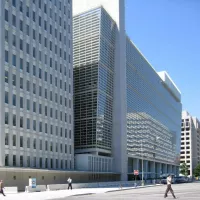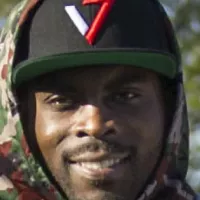Cameroon, officially the Republic of Cameroon, is a Central African nation bordering several countries, including Nigeria, Chad, and the Republic of the Congo. It has a coastline on the Bight of Biafra. Strategically located between West and Central Africa, it has a population of nearly 31 million speaking over 250 languages, including English and French. Yaoundé serves as its capital city.
1919: Division of Kamerun
In 1919, after World War I, Kamerun was split into French Cameroon (Cameroun) and British Cameroon as League of Nations mandate territories.
1932: First protected areas created
In 1932, the first protected areas in Cameroon were created in the northern region under the colonial administration, including the Mozogo Gokoro Reserve and the Bénoué Reserve.
March 1934: Establishment of Waza Reserve
On March 24, 1934, the Waza Reserve was established in Cameroon as part of the country's protected areas.
1946: United Nations Trusteeships
In 1946, the League of Nations mandates were converted into United Nations Trusteeships, making the question of independence a pressing issue, especially in French Cameroon.
July 1955: Outlawing of the UPC
On 13 July 1955, France outlawed the pro-independence political party, the Union of the Peoples of Cameroon (UPC).
January 1960: Independence of French Cameroun
On 1 January 1960, French Cameroun gained independence from France under President Ahmadou Ahidjo, becoming the Republic of Cameroon.
1960: Independence of the Republic of Cameroun
In 1960, the French-administered part of Cameroon gained independence, becoming the Republic of Cameroun under President Ahmadou Ahidjo.
1960: Independence of Cameroon
Since Cameroon's independence in 1960, the military has been crucial in supporting its authoritarian government.
October 1961: Independence and Merger of Southern Cameroons
On 1 October 1961, the formerly British Southern Cameroons gained independence from the United Kingdom by vote of the UN General Assembly and merged into the Republic of Cameroon to form the Federal Republic of Cameroon.
1961: Southern Cameroons Federation
In 1961, the southern part of British Cameroons federated with the Republic of Cameroun to form the Federal Republic of Cameroon.
September 1966: CNU becomes the sole legal political party
On 1 September 1966, Ahidjo's political party, the Cameroon National Union (CNU), became the sole legal political party.
January 1971: End of National Liberation Insurgency
In January 1971, the national liberation insurgency between the French Armed Forces and the Union of the Peoples of Cameroon (UPC) came to an end.
1971: Suppression of the UPC
In 1971, Ahidjo continued to concentrate power in the presidency, even after the suppression of the UPC.
May 1972: Referendum to abolish the federal system
On 20 May 1972, a referendum was passed to abolish the federal system of government in favor of a United Republic of Cameroon.
1972: Abandonment of the Federation
In 1972, the federation was abandoned, and the country was renamed the United Republic of Cameroon.
May 1975: Change to national flag
On 20 May 1975, the national flag was changed with the two stars removed and replaced with a large central star as a symbol of national unity.
1975: Biya becomes Prime Minister
In 1975, Paul Biya first held office as prime minister.
November 1982: Ahidjo steps down
On 4 November 1982, Ahidjo stepped down and left power to his constitutional successor, Paul Biya.
1982: FIFA World Cup Showing
In 1982, Cameroon's national football team had a strong showing in the FIFA World Cup.
1982: Biya becomes President
In 1982, Paul Biya became the president of Cameroon, following the resignation of Ahmadou Ahidjo.
1984: Renaming to Republic of Cameroon
In 1984, by a presidential decree by President Paul Biya, the country was renamed back to the Republic of Cameroon.
August 1986: Lake Nyos disaster
On August 21, 1986, Lake Nyos in Cameroon belched carbon dioxide, resulting in the death of between 1,700 and 2,000 people.
1986: Decline in petroleum exploitation
Since 1986, petroleum exploitation in Cameroon has fallen, though it remains a substantial sector with dips in prices significantly affecting the economy.
1987: Dja Faunal Reserve named World Heritage Site
In 1987, Dja Faunal Reserve, Cameroon's first World Heritage Site, was inscribed on the list by UNESCO.
December 1990: Reintroduction of multi-party politics
In December 1990, multi-party politics were reintroduced in Cameroon, and the former British Southern Cameroons pressure groups called for greater autonomy.
December 1990: Formation of regional political groups
Until December 1990, President Biya's Cameroon People's Democratic Movement (CPDM) was the only legal political party, after that numerous regional political groups formed.
1990: FIFA World Cup Showing
In 1990, Cameroon's national football team had a strong showing in the FIFA World Cup.
1990: Forest cover in Cameroon
In 1990, the forest cover in Cameroon was 22,500,000 hectares, which decreased to 20,340,480 hectares in 2020.
1992: Labour Code of Cameroon
In 1992, the Labour Code of Cameroon gave workers the freedom to belong to a trade union or not, based on their choice.
1996: Cameroon and Nigeria attempt to establish a cease-fire.
In 1996, Cameroon and Nigeria attempted to establish a cease-fire amidst their ongoing dispute over the Bakassi peninsula, though fighting continued for years despite the effort.
1996: Establishment of the Senate
In 1996, the constitution establishes a second house of parliament, the 100-seat Senate.
1997: Establishment of anti-corruption bureaus
In 1997, Cameroon established anti-corruption bureaus in 29 ministries, but only 25% became operational.
1998: Government revenue from logging
As of 1998, the government of Cameroon received US$60 million a year in taxes from logging, primarily handled by foreign-owned firms.
2000: Olympics Gold Medal
In 2000, Cameroon won the gold medal at the Olympics in football.
2002: ICJ rules that the Anglo-German Agreement of 1913 gave sovereignty to Cameroon.
In 2002, the International Court of Justice (ICJ) ruled that the Anglo-German Agreement of 1913 granted sovereignty of the Bakassi peninsula to Cameroon, calling for a withdrawal by both countries and denying Cameroon's request for compensation.
2004: Initiation of Fairtrade cotton production
In 2004, the production of Fairtrade cotton was initiated in Cameroon.
2004: Reduction of public debt begins
Starting in 2004, Cameroon began reducing its public debt from over 60% of GDP to 10% by 2008.
2005: Increased kidnappings by Central African bandits
Since 2005, kidnappings of Cameroonian citizens by Central African bandits have increased.
2005: Increased road banditry
Since 2005, road banditry has intensified along Cameroon's eastern border due to destabilization in the Central African Republic, hampering transport.
January 2006: Initiation of anti-corruption drive
On 18 January 2006, Biya initiated an anti-corruption drive under the direction of the National Anti-Corruption Observatory.
June 2006: UN-mediated summit facilitates agreement for Nigeria to withdraw from Bakassi region
In June 2006, a UN-mediated summit facilitated an agreement for Nigeria to withdraw from the Bakassi region, and both leaders signed the Greentree Agreement.
June 2006: Resolution of Bakassi peninsula dispute
In June 2006, talks concerning a territorial dispute over the Bakassi peninsula were resolved, resulting in Cameroonian control of the oil-rich peninsula.
August 2006: Handover of northern Bakassi territory
In August 2006, the northern portion of the Bakassi peninsula was formally handed over to the Cameroonian government.
August 2006: Withdrawal and handover of control of Bakassi peninsula completed
In August 2006, the withdrawal and handover of control of the Bakassi peninsula by Nigeria to Cameroon was completed, following agreements and negotiations facilitated by the UN.
2007: Cameroon hosts refugees and asylum seekers
In 2007, Cameroon hosted approximately 97,400 refugees and asylum seekers, mainly from the Central African Republic and Chad.
February 2008: Violent Protests in Cameroon
In February 2008, Cameroon experienced its worst violence in 15 years when a transport union strike in Douala escalated into violent protests in 31 municipal areas.
2008: Public debt reduced and official reserves quadrupled
By 2008, Cameroon had reduced its public debt to 10% of GDP from over 60% and quadrupled its official reserves to over US$3 billion since 2004.
2008: Full control of Bakassi peninsula
In 2008, the remainder of the Bakassi peninsula was left to Cameroon.
November 2009: Militants lay down arms
In November 2009, most militants laid down their arms, however some carried on fighting for years.
2012: Transparency International ranking
In 2012, Transparency International placed Cameroon at number 144 on a list of 176 countries ranked from least to most corrupt.
2012: Life expectancy at birth estimated
In 2012, the life expectancy at birth in Cameroon was estimated to be 56 years, with 48 healthy life years expected.
2012: Top three deadly diseases
In 2012, the top three deadly diseases in Cameroon were HIV/AIDS, lower respiratory tract infection, and diarrheal diseases.
2013: UNICEF report on FGM
According to a 2013 UNICEF report, 1% of women in Cameroon have undergone Female Genital Mutilation (FGM).
2013: Fertility rate
According to the World Health Organization (WHO), in 2013 the fertility rate in Cameroon was 4.8 with a population growth rate of 2.56%.
2013: Primary school enrollment rate
In 2013, the primary school enrollment rate in Cameroon was 93.5%.
2013: Adult literacy rate in Cameroon
In 2013, the total adult literacy rate in Cameroon was estimated to be 71.3%.
May 2014: Declaration of war on Boko Haram
In May 2014, following the Chibok schoolgirls kidnapping, the presidents of Cameroon and Chad announced they were waging war on Boko Haram and deployed troops to the Nigerian border.
December 2014: Boko Haram attack
In December 2014, Boko Haram launched several attacks into Cameroon, killing 84 civilians.
December 2014: Cameroon listed for child labor in cocoa production
In December 2014, a List of Goods Produced by Child Labor or Forced Labor issued by the Bureau of International Labor Affairs mentioned Cameroon among the countries that resorted to child labor in the production of cocoa.
2014: Percentage of population living below poverty threshold
In 2014, 23.8% of the population in Cameroon was living below the international poverty threshold of US$1.90 a day.
2014: Healthcare expenditure
In 2014, just 4.1% of total GDP expenditure in Cameroon was allocated to healthcare.
2014: Opening of Kribi Deepwater Port
In 2014, the Kribi Deepwater Port in Cameroon started operations, enhancing the country's seaport infrastructure.
2014: Contraceptive prevalence rate
In 2014, the contraceptive prevalence rate in Cameroon was estimated to be just 34.4%.
2014: Influx of refugees from Central African Republic
In the first months of 2014, thousands of refugees fleeing violence in the Central African Republic arrived in Cameroon.
2014: Military combats Boko Haram
Since 2014, the military in Cameroon has been involved in combating Boko Haram, contributing to the support of the authoritarian government.
January 2015: Heavy defeat for Boko Haram
In January 2015, Boko Haram suffered a heavy defeat in a raid into Cameroon.
2015: Forest area under public ownership in Cameroon
In 2015, it was reported that 100% of the forest area in Cameroon was under public ownership.
November 2016: Protests in Anglophone regions
Since November 2016, protesters from the predominantly English-speaking Northwest and Southwest regions of Cameroon have been campaigning for continued use of the English language in schools and courts.
December 2016: Women Africa Cup of Nations
In November–December 2016, Cameroon was the host country of the Women Africa Cup of Nations.
2016: HIV/AIDS prevalence rate
In 2016, the HIV/AIDS prevalence rate in Cameroon was estimated at 3.8% for those aged 15–49. An estimated 46,000 children under age 14 were living with HIV, and 29,000 deaths due to AIDS occurred in both adults and children.
2017: Internet shutdown
In 2017, Biya's government blocked the regions' access to the Internet for three months. Separatists started a guerilla war for the independence of the Anglophone region as the Federal Republic of Ambazonia.
2017: Agriculture contribution to GDP
In 2017, agriculture comprised an estimated 16.7% of Cameroon's GDP, with 70% of the population engaged in farming.
2017: Factory-based industry contribution to GDP
In 2017, factory-based industry accounted for an estimated 26.5% of Cameroon's GDP.
2017: Anglophone protests and declaration of Ambazonia
In 2017, language protests by the Anglophone population against perceived oppression by francophone speakers led to military deployment, deaths, imprisonment, and the declaration of an independent Republic of Ambazonia.
2017: Escalation of tensions in English-speaking territories
In 2017, tensions in the English-speaking territories of Cameroon, regarding the creation of an Ambazonian state, escalated into open warfare.
2017: Military handles Anglophone separatist movement
Since 2017, the military in Cameroon has been involved in handling the Anglophone separatist movement, in addition to its other roles in supporting the government.
July 2018: UN High Commissioner expresses concern about human rights violations in Cameroon
On July 25, 2018, the UN High Commissioner for Human Rights Zeid Ra'ad Al Hussein expressed deep concern about reports of violations and abuses in the English-speaking Northwest and Southwest regions of Cameroon.
September 2018: Victory over Boko Haram
In September 2018, Cameroon declared victory over Boko Haram on Cameroonian territory.
2018: Transparency International ranking
In 2018, Transparency International ranked Cameroon 152 on a list of 180 countries, showing increased corruption.
July 2019: Cameroon signs joint letter defending China's treatment of Uyghurs
In July 2019, Cameroon, along with UN ambassadors from 37 countries, signed a joint letter to the UNHRC defending China's treatment of Uyghurs in the Xinjiang region.
2019: Continued fighting
As of 2019, fighting between separatist guerillas and government forces continues in Cameroon.
2019: Unemployment rate in Cameroon
In 2019, the unemployment rate in Cameroon was estimated at 3.38%.
February 2020: Parliamentary elections
The last parliamentary elections were held on 9 February 2020.
June 2020: Internal displacement due to Anglophone Crisis
It is estimated that by June 2020, 740,000 people had been internally displaced in Cameroon as a result of the Anglophone Crisis.
December 2020: Boko Haram steps up attacks in Cameroon
Since December 2020, Human Rights Watch has claimed that the Islamist armed group Boko Haram has stepped up attacks and killed at least 80 civilians in towns and villages in the Far North region of Cameroon.
2020: Terrorist attacks and government reprisals
During 2020, numerous terrorist attacks and government reprisals have led to bloodshed throughout the country of Cameroon.
2020: African Nations Championship
In 2020, Cameroon was the host country for the African Nations Championship.
2020: Forest cover in Cameroon
In 2020, forest cover in Cameroon was around 43% of the total land area, equivalent to 20,340,480 hectares. Naturally regenerating forests covered 20,279,380 hectares, and planted forests covered 61,100 hectares.
December 2021: Ethnic clashes lead to displacement
In December 2021, over 30,000 people in northern Cameroon fled to Chad after ethnic clashes over access to water between Musgum fishermen and ethnic Arab Choa herders.
2021: Population of Cameroon
In 2021, the population of Cameroon was 27,198,628 and the life expectancy was 62.3 years.
2024: Cameroon ranked in the Global Innovation Index
In 2024, Cameroon was ranked 123rd in the Global Innovation Index.
2024: Global Hunger Index
In the 2024 Global Hunger Index (GHI), Cameroon ranks 79th out of 127 countries with sufficient data, with a GHI score of 18.3, considered moderate.
2025: Estimated per capita GDP
In 2025, Cameroon's per capita GDP (Purchasing power parity) was estimated at US$5.760.
Mentioned in this timeline
Nigeria is a West African nation the most populous in...
Germany officially the Federal Republic of Germany is a Western...
China officially the People's Republic of China PRC is an...
Africa is the second-largest and second-most populous continent comprising of...

The World Bank is an international financial institution offering loans...

Football is a family of team sports primarily involving kicking...
Trending

8 months ago Supreme Court upholds Tennessee's ban on gender-affirming care for transgender youth: Landmark case.
Nicholas Nick Bjugstad is a professional ice hockey forward currently playing for the St Louis Blues in the NHL Bjugstad...

Tre Johnson is an American professional basketball player currently playing shooting guard for the Washington Wizards in the NBA A...

3 months ago Michael Vick vs. DeSean Jackson: Norfolk State faces Delaware State in Week 10

2 months ago Kyshawn George's Status Uncertain: Toe Injury Puts Pacers Player's Game in Doubt

3 months ago Khris Middleton returns to Milwaukee, anticipates warm welcome, hopes jersey gets retired
Popular

Thomas Douglas Homan is an American law enforcement officer who...

Melania Trump a Slovenian-American former model has served as First...

William Franklin Graham III commonly known as Franklin Graham is...

XXXTentacion born Jahseh Dwayne Ricardo Onfroy was a controversial yet...

Jupiter is the fifth and largest planet from the Sun...

Instagram is a photo and video-sharing social networking service owned...